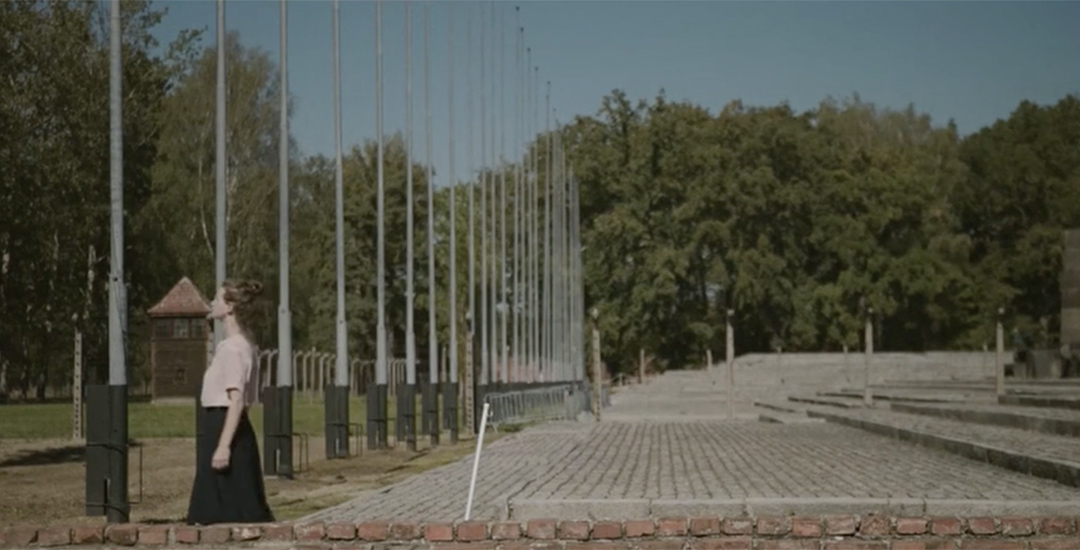
"There was a band playing. The finest musicians in the world. These were all prisoners from all over occupied Europe."
The Last Musician of Auschwitz is a documentary that explores music, identity, and survival through the story of Anita Lasker-Wallfisch and other musicians connected to Auschwitz. It is a source-rich way to study Holocaust history, oral testimony, music, and memory.
It is designed for grades 8–12 (Middle and High School Level). Individual lessons can be adapted for older middle-schoolers, more challenging for advanced high-school classes, or used in early college courses.
The lesson plans can be used to teach the following subjects: Social Studies, English Language Arts (readings and written responses), Art and Music.
Yes! We encourage any interested teachers to use our educational materials. We believe that The Last Musician of Auschwitz can speak to students across many different disciplines and we encourage you to adapt the materials as needed. Other subject areas for which these materials would be appropriate include World Languages, Art and Media, Drama and Speech.
Each lesson plan is aligned with the Common Core. If you go to the individual lesson plan modules, you will see the standards that align with each lesson.
Most lessons fit a single 45-minute block (watching clips + student activity). Some lessons (close reading of testimony, group projects) can be extended to two class periods if desired.
Starting in October 2025, the whole documentary will be available via BBC Select for teachers to view and prepare with. We generally suggest showing curated 2-3 minute clips in class rather than the entire 90-minute film, unless you can provide additional historical context and time for close analysis and debriefing.
You can start with the resources listed on our Further Resources page. An excellent resource to start with is the Introduction to the Holocaust created by the United States Holocaust Memorial Museum (USHMM).
Below are some recommendations if you have only a limited number of class periods, based on class time and subject-matter emphasis.
Social Studies/History Teachers
If you are teaching about World War Two and the Holocaust, each of the six lesson plans has material within this scope and contributes to students’ understandings of the time period. If you have limited time in which to explore World War Two and the Holocaust, we recommend the following lessons as providing foundational learning experiences:
If you have one class period: Lesson 1
If you have two class periods: Lessons 1 and 4
If you have three class periods: Lessons 1, 3, and 4
If you have more time, please consider teaching all lessons plans. There are extension activities in each.
English Language Arts
If you are teaching students about using textual evidence to support analysis of primary and secondary sources, about the genre of memoir, or about poetry/lyrics, each of the six lessons has material within this scope and contributes to students’ understandings. If you have limited time in which to explore these skills or the genre, we recommend the following lessons as providing foundational learning experiences:
If you have one class period: Lesson 1
If you have two class periods: Lessons 1 and 4
If you have three class periods: Lessons 1, 2, and 6
If you have more time, please consider teaching all lessons plans. There are extension activities in each.
Music Education
If you are teaching students how music develops in a historical context or the correlations to music’s role in society in a variety of contexts, each of the six lessons has material within this scope and contributes to students’ understandings. If you have limited time in which to explore these skills, we recommend the following lessons as providing foundational learning experiences:
If you have one class period: Lesson 3
If you have two class periods: Lessons 3 and 4
If you have three class periods: Lessons 3, 4, and 5
If you have more time, please consider teaching all lessons plans. There are extension activities in each.
The curriculum and lesson plans were prepared by Lilly Maier, a Holocaust historian based in Munich, Germany, and peer-reviewed by historians from the Center for Jewish History in New York City, New York. For more information about the Center for Jewish History or Maier, please view the About page.